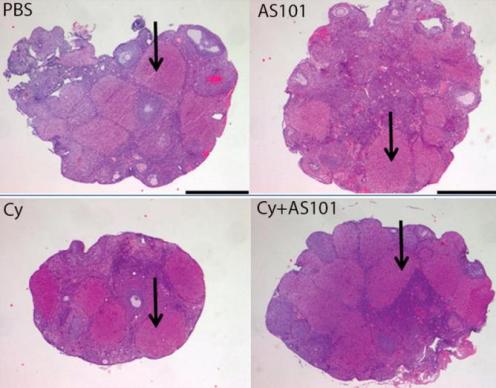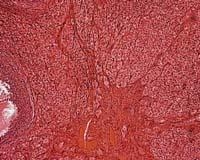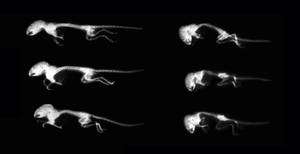They have tested in the mouse a molecule to protect the ovaries from chemotherapy
2013/05/31 Galarraga Aiestaran, Ana - Elhuyar Zientzia Iturria: Elhuyar aldizkaria

One of the drugs used in chemotherapy, cyclophosphamide, in addition to analyzing its harmful effect on the ovaries, has presented a molecule that protects a group of Israeli researchers from this damage. The study, published in the journal Science Translational Medicine, indicates that the administration of the AS101 molecule to mouse females, along with cyclophosphamide, reduces the damage of the ovaries and prevents the loss of fertility of mice.
Researchers have explained that cyclophosphamide activates ovarian follicles, which makes them vulnerable to the following doses by killing cells that are doubling the drugs. They have even seen that this activation is controlled through the PI3K protein. And precisely against this protein acts the molecule AS101. Thus, some mice treated with cyclophosphamide were given the AS101, which allowed them to show that the follicles suffered less damage.
Measures of protection at present
Onkologikoa specialist, Arrate Plazaola, believes that although the molecule can be effective, it is still early to say if it will benefit women. In addition, he explained to Elhuyar magazine that they continue to take measures to avoid losing the opportunity to reproduce and protect the ovaries.
To begin with, Plazaola recalls that chemotherapy does not bring with it forced sterilization: “Treatment is always done taking into account the degree of incidence of drugs to be administered in fertility, in order to provide a treatment as light as possible or less harmful as possible. However, in some cases we know that the ovaries will suffer damage. Then, we are going to other specialists to choose the most appropriate option from among all existing options.”
Among these alternatives, Plazaola has mentioned the extraction and freezing of oocytes or the ovarian surface so that “later it can have children through in vitro fertilisation”.
Finally, like the Isralego study, it claims that drugs are also used to protect the ovaries. “These drugs are analogous to LH-RH and in some cases give good results. Somehow, the nose is asleep, menstruation disappears and the damage of chemotherapy is less.”
In short, research to reduce the side effects of chemotherapy has a special interest and is being tested in laboratories around the world in order to preserve the well-being of patients.
Gai honi buruzko eduki gehiago
Elhuyarrek garatutako teknologia






